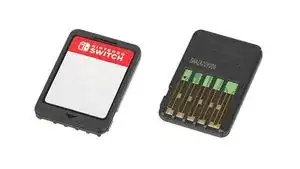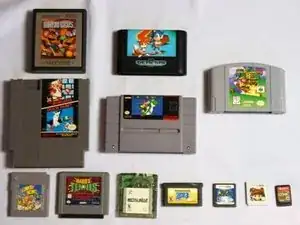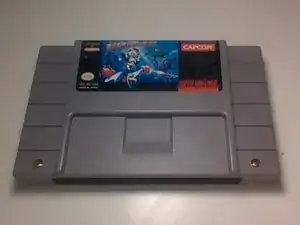Background Information
The Nintendo Game Cartridge, otherwise known as a ROM cartridge, is a cartridge or card designed specifically for Nintendo's game console and is typically proprietary to a specific game console. These cartridges are used by users to rapidly load and access standalone games and applications.
History
Family Computer and Nintendo Entertainment System Game Pak (1983 - 2003)
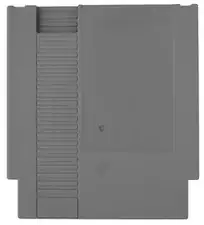
The Nintendo Entertainment System (NES), was released in Japan on July 15, 1983, under the name Famicom. The game cartridges, officially acknowledged as the Game Pak, acted as the software storage medium for the NES. All officially licensed NTSC-U and PAL region cartridges are 13.3 cm (5.25 inches) tall, 12 cm (4.75 inches) wide, and 2 cm (0.75 inches) thick.
Early NES Game Paks are held together with 5 small, slotted screws, but cartridges manufactured after 1987 were redesigned slightly to incorporate two plastic clips molded into the plastic itself, eliminating the need for the top two screws. The standard screws were also changed to 3.8 mm security screws to further secure the ROMs inside from tampering.
The Famicom's Game Paks featured a 60-pin cartridge design, which allowed for the cartridges to be smaller than the United States NES, which featured a 72-pin design. While the US's NES does have more pins than its Japanese counterpart, early NES games used the same printed circuit boards as the Famicom by incorporating a converter directly into the cartridge allowing it to fit into the NES.
Game Boy Cartridges (1989 - 2003)
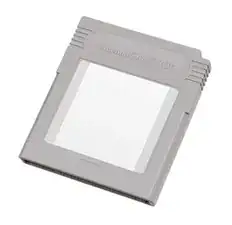
Super Famicom and Super Nintendo Entertainment System Cartridges (1990 - 2005)
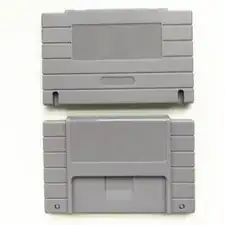
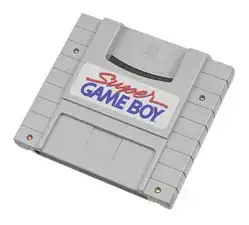
Nintendo 64 Cartridges (1996 - 2002)
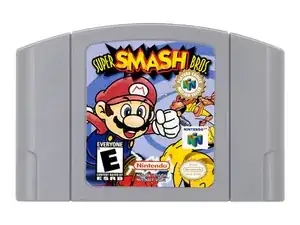
Game Boy Color Cartridges (1998 - 2003)
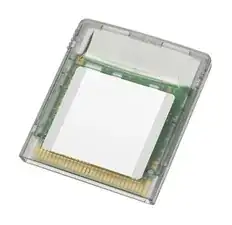
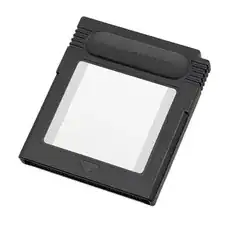
Game Boy Advance Cartridges (2001 - 2010)
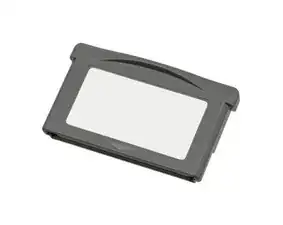
Nintendo DS & DSi Cards (2004 - 2014)
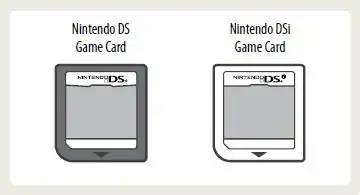
Nintendo 3DS Cards (2011 - 2020)
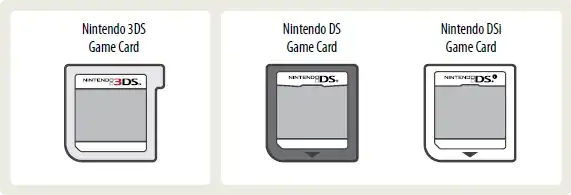
Nintendo Switch Cards (2017 - Present)
